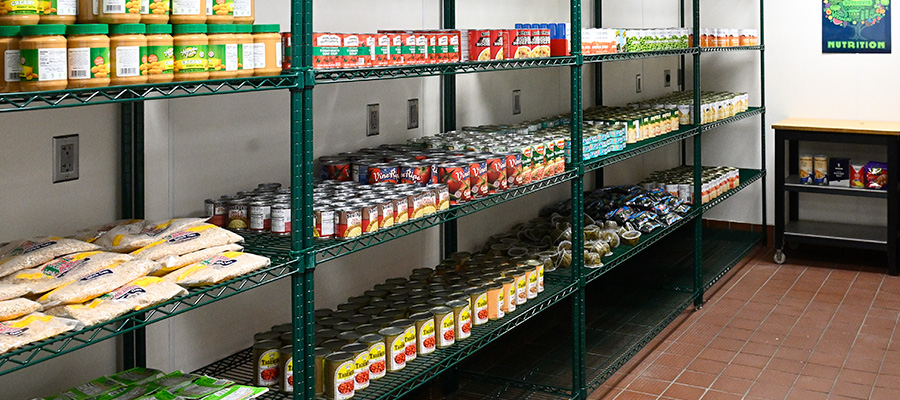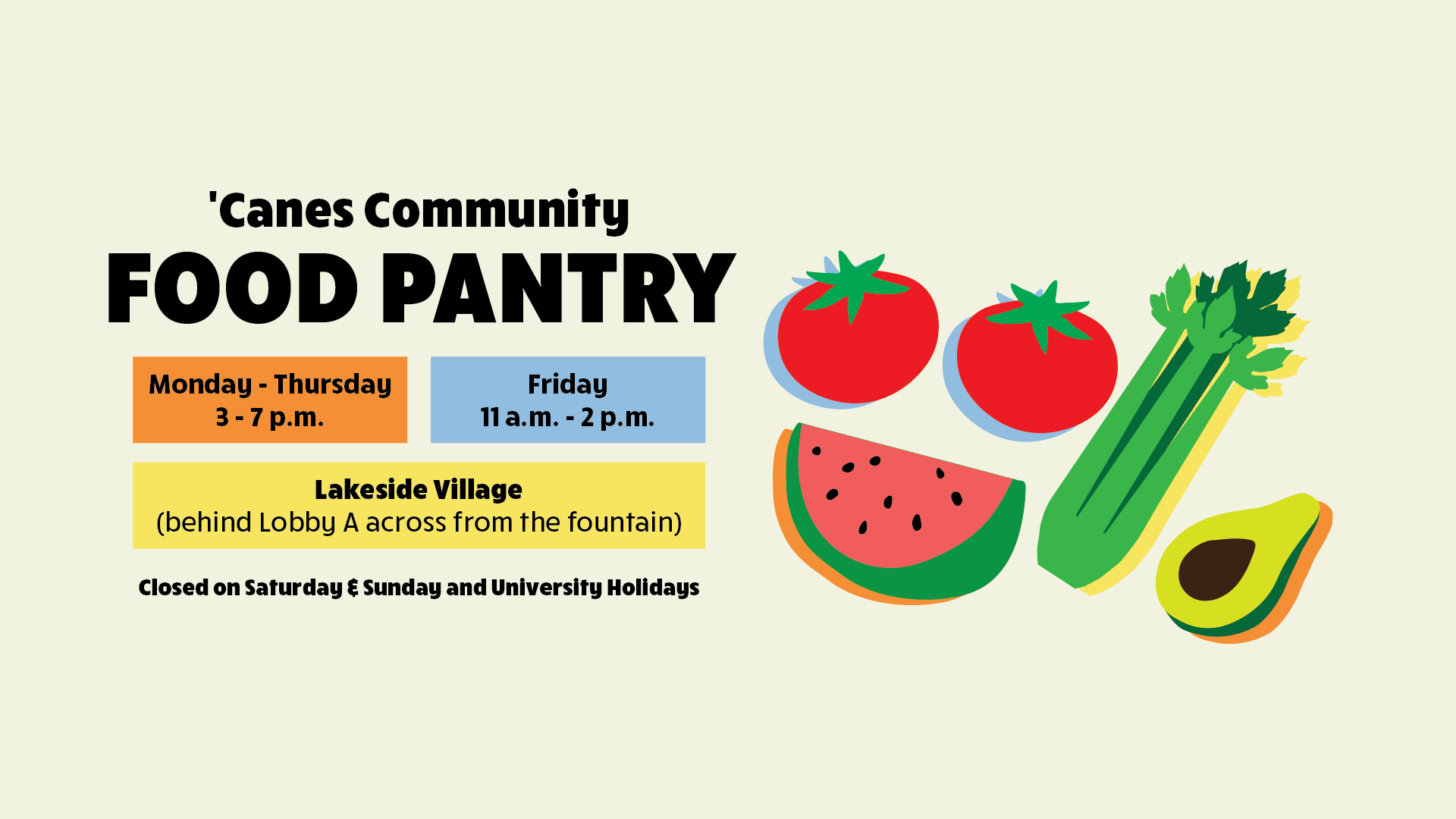Food Pantry Lockhart's Dedication to Combating Food Insecurity in the Area
Food Pantry Lockhart's Dedication to Combating Food Insecurity in the Area
Blog Article
Why Sustaining Your Neighborhood Food Cupboard Is Essential for Assisting Those in Need
The significance of supporting neighborhood food kitchens can not be overstated, particularly in the context of food instability, which impacts a startling variety of people and family members within our areas. These important resources not only offer immediate relief from cravings yet likewise add to more comprehensive social benefits, consisting of boosted health and wellness and academic end results. As we explore the complex duty of food kitchens, it ends up being evident that their influence extends much beyond simply dispersing food (Food Pantry Lockhart). Recognizing this deeper link may motivate a reconsideration of exactly how we involve with and support these critical institutions.
Recognizing Food Insecurity
Food instability influences about 10.5% of families in the USA, illustrating a considerable public wellness issue that goes beyond plain cravings. It refers to the lack of consistent access to sufficient food for an active, healthy and balanced life. This problem can lead to a variety of unfavorable results, including poor health, increased health care expenses, and lessened academic performance among children.
The reasons for food instability are complex, frequently coming from financial aspects such as underemployment, destitution, and joblessness. Geographic location can also play a critical role, with food deserts-- locations with minimal access to nutritious and inexpensive food-- aggravating the concern - Food Pantry Lockhart. Additionally, systemic variables, including racial and social inequities, add to the disproportionate impact of food insecurity on marginalized areas
Resolving food insecurity is not simply about boosting food supply; it calls for a comprehensive approach that incorporates economic stability, education, and neighborhood support. Food instability not only affects specific well-being yet likewise has broader ramifications for societal wellness and efficiency. Recognizing its complexity is important for developing reliable treatments and promoting lasting services that make sure all individuals have dependable accessibility to nourishing food.
The Function of Food Pantries
Regional food pantries act as important lifelines for family members and individuals facing food insecurity. They supply vital food things to those who might have a hard time to pay for adequate nutrition as a result of economic difficulty, unemployment, or unpredicted circumstances. By distributing food at no price, these companies aid reduce cravings and prevent the unfavorable health effects associated with inadequate diet regimens.
Food pantries commonly companion with local ranches, supermarket, and area organizations to source a range of healthy food things, including fresh produce, dairy, and proteins. This cooperation makes certain that pantry clients get not only food however additionally healthier options that add to general health.
Additionally, food cupboards function as area centers, cultivating connections among homeowners and giving a sense of dignity to those in demand. Many kitchens supply additional resources, such as nutrition education and referrals to social services, helping clients navigate their obstacles better.
Basically, food kitchens play a diverse role in combating food instability. They not only address prompt cravings however likewise encourage households and individuals to boost their circumstances, thereby promoting area strength and communication.

Benefits of Sustaining Food Pantries

Sustaining food kitchens not just nourishes those in requirement but likewise strengthens the fabric of the neighborhood. By providing vital food resources, food pantries minimize appetite and minimize food insecurity, which is essential for the wellness and health of people and family members. Accessibility to nourishing food adds to improved physical wellness, better academic results for children, and improved psychological wellness, therefore fostering a much more effective and involved neighborhood.
Furthermore, supporting food pantries advertises social communication. These organizations act as hubs for area involvement, uniting volunteers, donors, and recipients in a shared objective to fight appetite. This cooperation can damage down barriers, foster understanding, and construct partnerships among diverse area members.
Additionally, donations to food pantries, whether in the kind of food, funds, or time, promote the local economic climate. Many food pantries prioritize sourcing from neighborhood manufacturers, hence sustaining neighborhood farming and companies. This creates a cycle of assistance that profits not just those in need but the community overall.
Just How to Obtain Included
Engagement with food pantries can take many types, enabling people and teams to make a meaningful influence in their areas. Monetary donations are also vital, as they allow food cupboards to buy fresh fruit and vegetables and crucial materials.
Offering your time is another impactful way to sustain local food pantries. Numerous organizations count on volunteers for arranging, packing, and dispersing food. This hands-on participation not just aids the kitchen yet likewise cultivates a sense of neighborhood. Furthermore, take into consideration organizing food drives within your community, institution, or workplace team to raise awareness and collect sources.
Collaborations with regional companies can additionally enhance assistance for food pantries. By taking these people, teams and actions can significantly bolster the initiatives of local food cupboards and help those in demand.
Community Effect and Link
Identifying the extensive impact of food pantries on neighborhood well-being is crucial for promoting a spirit of link and cooperation. Food cupboards offer not just as essential resources for those facing food insecurity however likewise as centers for community interaction. They combine diverse teams-- volunteers, clients, and contributors-- developing an environment where people can connect and support one another.
The influence of food cupboards prolongs beyond mere arrangement of food; they function as a driver for social cohesion. By taking part in pantry campaigns, area members can establish connections that go beyond socioeconomic obstacles. This network of check my source support helps to take apart the stigma frequently related to food support, fostering an ambience of approval and understanding.
Additionally, food cupboards commonly team up with navigate here regional organizations, schools, and businesses, amplifying their reach and performance. These partnerships boost area resilience and encourage a cumulative action to food insecurity. As individuals join in their efforts to support local food cupboards, they cultivate a feeling of shared objective and obligation, enhancing the concept that everyone has a function to play in making sure that no one goes hungry. Inevitably, supporting food cupboards reinforces the fabric of the area in its entirety.
Conclusion
Supporting neighborhood food kitchens is essential in combating food insecurity and improving the well-being of at risk populations. By guaranteeing accessibility to healthy food, these companies contribute to improved health and wellness results, instructional efficiency, and mental health. Involvement with food pantries fosters community connections, advertising social communication and equity. Eventually, the cumulative initiative to boost these important sources plays a substantial role in developing a much healthier, more durable culture where all individuals have the chance to thrive.

Report this page